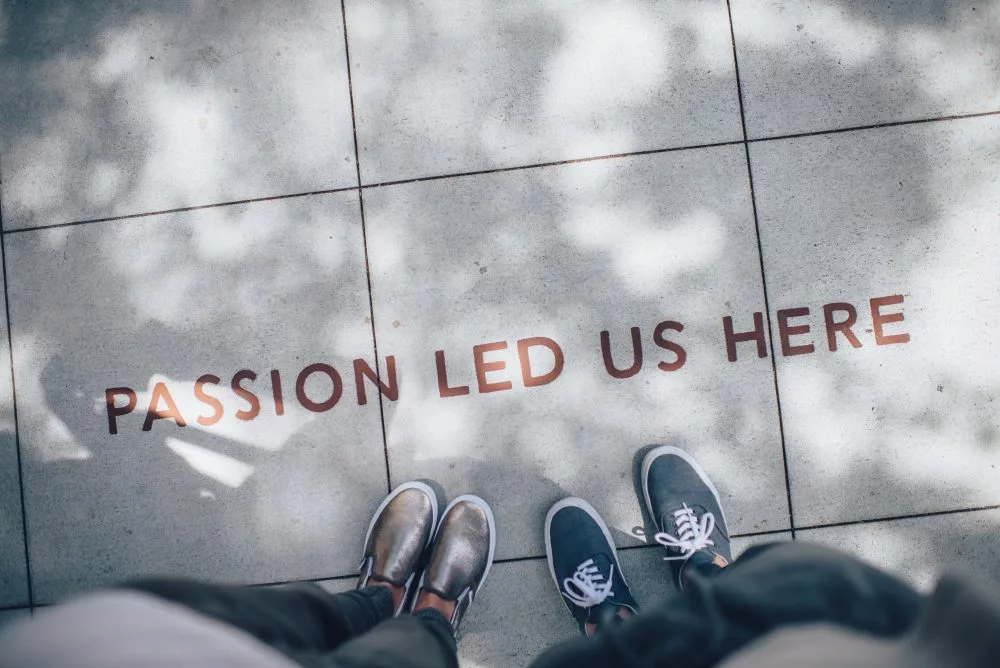“Should I stay or should I go?” It’s a familiar refrain in an era of meaning-seeking workers not quite satisfied with their roles. Jumping ship when a job doesn’t satisfy our needs for self-actualization is increasingly common, especially among Millennials. But heading on to the next great thing isn’t the only way to infuse a major dose of mission and passion into your career. If there’s a lot to like about your current organization, especially if you’ve been there long enough to build mutual trust, then finding your way into a more satisfying role within your current company could offer an exciting path.
“If you’re in doubt about leaving, and want a really heavy learning ride, set up a social intrapreneurship project,” says Heiko Spitzeck, co-author of “Social Intrapreneurism and all that Jazz” and a professor at Fundação Dom Cabral, a Brazilian business school. “I always say you should try to do as much as possible internally before leaving, because the worst that can happen is that they fire you. That’s what you wanted anyhow. So make use of that time.”
On the flip side, the most successful social intrapreneurs actually tend to have been with a company for a while, says Hans Balmaekers, director at Innov8rs, which convenes conferences for intrapreneurs around the world. Successfully adding more social mission within a company requires immersion within the organization to understand its strategy and develop a relevant skill set for yourself. “That often takes two or three and sometimes even five years,” he says.
Here are three different leaders who managed to innovate their way to impact-focused jobs they love from within an organization.
1. Letitia Webster, Vice President, Global Corporate Sustainability & Responsibility at VF Corporation
Letitia Webster has a huge ability to lead change from within. As VP, Global Corporate Sustainability & Responsibility for VF Corporation, she heads sustainability initiatives for the $12 billion apparel and footwear company that owns well-known brands like Timberland, Wrangler, Lee, Vans, and The North Face. The company recently unveiled an ambitious new responsibility strategy tied to the UN’s Sustainable Development Goals that, for example, aspires to have the company lead the large-scale commercialization of circular business models by 2030. But Webster’s first job with VF, in the marketing department at The North Face back in 2000, had almost nothing to do with sustainability or impact.
“I think I’ve written almost every single job description since the very first one,” she says. With a background in nonprofit environmental activism, she arrived at The North Face with passion about a cause. “By then, I’d learned the hard way that the scientific argument was not enough to move the needle ,” she says. “Really what was going to move the needle was the business point of view. Those two coming together were going to make change.” So as she learned more about speaking to consumers in her marketing role at The North Face, she began looking for opportunities where the business could address a problem in a market-driven way. From 2006 to 2008, the company supported her in pursuing an MBA in sustainable business from Bainbridge Graduate Institute (now Presidio Graduate School), and by 2009 her director-level title included the words “corporate responsibility.” “My sweet spot,” she says, “is about blazing a trail, finding the white space, finding opportunities for business and myself to move into.”
Her advice to intrapreneurs: Be patient. “You need to have a sense of urgency ,” she says, “but at the same time you need to be patient and let the process unfold.”
2. Lisa Estrada, Economic Efficiency and Sustainability Manager at the City of Peoria, AZ
Thanks to Lisa Estrada, the city of Peoria, AZ, a 171,000-person suburb of Phoenix, recently installed its first solar-covered parking facilities. But it wasn’t until she’d been working at the city for nearly a decade that programs like that became her main responsibility. She started her career working in governmental and legislative affairs, with a personal passion for environmental sustainability. Over time, thanks to her enthusiasm, she began to add more and more sustainability-related tasks to her regular role, including leading a green team within the organization and attending sustainability-related events and meetings on its behalf. “I was doing two jobs,” she admits. “It’s not for everyone. But because I was so passionate about sustainability, I believed in it, and I enjoyed the new perspectives it brought to the organization.” Her boss and the organization were supportive, including offering tuition reimbursement as she pursued an online MBA in sustainable development from Marylhurst University and an Executive Masters of Sustainability Leadership from Arizona State University while keeping her job. By 2015, she’d convinced the city to create a full-time position for her to focus on sustainability — meaning she intrapreneured her way into a position where now her job is to keep creating intrapreneurship projects full-time.
“Really take a look at the organization as a whole and understand its culture and the values,” she advises other would-be intrapreneurs. “Look for ways to make the connection between your passion and the existing culture. Look for those bridges, those ways to demonstrate the value that can bring. The only way you can do that is to put the responsibility on yourself to be educator or translator. Everyone will be in their lane doing their job as they were hired to. Keep in mind that you are serving them. Take time to learn about their responsibilities and challenges, the barriers they face, ways that sustainability can provide solutions, so having you around becomes an overall benefit to their objectives as well as yours.”
3. Scott Shute, VP of Global Customer Operations at LinkedIn
Scott Shute discovered meditation when he was 13 years old, and has been teaching mindfulness practices since he was 20. But after more than two decades in Silicon Valley, he had still never “come out” as a meditator in his professional world. All that changed in 2015, when he asked his colleague in charge of health and wellness programs at LinkedIn whether the company had any kind of meditation offering. The response: Maybe you should start something. Shute did nothing for a few months, afraid of what people might think, then brought the idea up to the VP of HR — who immediately suggested he proceed and report back. So he began teaching a meditation class at the company. One person showed up to the first session.
But now, three later, he’s added “Head of Mindfulness Programs” to his job title, and, along with a team of fellow volunteers, is growing a program that includes online mindfulness resources, a 30-day challenge, a mindfulness speakers series, weekend mini-retreats, and weekly classes that have touched thousands of the company’s 11,000 employees at 10 different locations around the globe. “I had to get out of my own way,” he says. “That’s been the only thing slowing me down.”
Of course, LinkedIn CEO Jeff Weiner’s public mentions of mindfulness helped. “That creates an umbrella where it’s okay,” Shute says. Yet he still feels hesitant sometimes to push his project forward. “I’m still working on getting to the place where I feel completely comfortable inserting a three-minute mindful moment into any situation.” Long-term, he’s working to help bring a culture of mindfulness to the company at large. “It’s about providing something at every step of the journey and meeting people where they are. It starts with me and others leading by example and creating a safe space for everyone to explore.”
Read about 5 more amazing social intrapraneurs in our list of 30 World-Changing Women in Conscious Business.
In partnership with Marylhurst University, we’re releasing a series of articles all about social intrapreneurship, featuring success stories, advice from the trenches, key challenges, best practices, and more. Stay tuned to our social Intrapreneurship channel for the latest articles, and email us at info@consciouscomag.com if you have an intrapreneurship question or success story to share.








